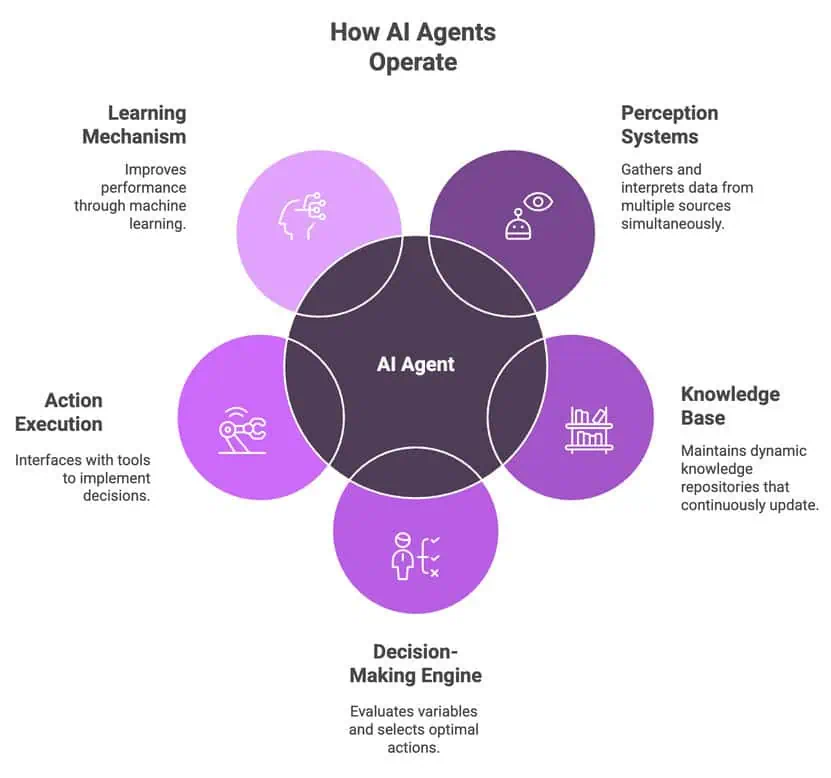Summary
African SMEs face a digital paradox: traditional SEO spend rises while emotional keywords and Generative Engine Optimization (GEO) drive AI search visibility across ChatGPT, Google AI Overviews, and Perplexity. Dexibit’s GEO benchmark ties a one-point lift in positive sentiment to five ranking positions, with emotionally resonant language, polarity scoring, and semantic similarity outperforming keyword density and backlinks. Strategic wins come from localized emotional keyword research, E-E-A-T aligned storytelling, and sentiment instrumentation that improves AI citations, GEO inclusion, and conversion outcomes.
Small and medium enterprises across Africa face a digital paradox: 73% invest in Search engine optimisation, but less than 12% understand how emotional keywords influence their visibility in AI-powered Search engines. The emergence of Generative Engine Optimisation marks a shift from traditional keyword targeting to sentiment-driven content strategies that resonate with both artificial intelligence algorithms and human emotions.
Recent data from Dexibit’s GEO benchmark study shows that emotional resonance, especially positive visitor sentiment, is the strongest predictor of generative AI visibility. For every one-point increase in sentiment on a five-point scale, businesses gained an average of five positions in GEO rankings—a 400% improvement that traditional SEO metrics cannot match.
This transformation reflects a broader evolution in Search technology, where AI systems like ChatGPT, Google’s AI Overviews, and Perplexity prioritise content that shows emotional intelligence over mechanical keyword optimisation. Understanding and using emotional keywords in GEO SEO strategies is now essential for African SMEs competing in an increasingly AI-driven Search landscape.
Understanding Emotional Keywords in AI-First Search Systems
The Science Behind Sentiment-Driven Rankings
Emotional keywords are terms and phrases with inherent sentiment polarity, triggering specific emotional responses in both human readers and AI language models. Unlike traditional keywords focused only on topical relevance, emotional keywords embed psychological triggers that AI systems see as indicators of content quality and user satisfaction.
Google’s advanced AI models now use sentiment analysis techniques to assign polarity scores to content based on emotional tone. These models evaluate text with natural language processing algorithms that detect subtle emotional nuances, from enthusiasm and excitement to frustration and disappointment. The framework assigns sentiment scores between -1 and +1, where positive values indicate content likely to generate favourable user experiences.
Research from the University of Birmingham shows that AI systems achieve superior empathic accuracy than human responders in detecting emotions from user descriptions. This capability enables generative Search engines to prioritise content that aligns with user emotional states, creating more satisfying Search experiences and higher engagement rates.
How AI Engines Process Emotional Context
Modern generative Search platforms operate differently from traditional Search engines in how they analyse emotional content. While conventional algorithms focus on keyword density and backlink authority, AI-powered systems analyse natural language patterns to understand emotional resonance and context.
The process begins with entity extraction, where AI systems identify specific emotional markers in content. These systems use semantic similarity algorithms to recognise that phrases like “absolutely thrilling,” “deeply satisfying,” and “remarkably effective” convey similar positive emotional intensity despite different vocabulary. This understanding allows AI to reward content that maintains a positive emotional tone throughout the user journey.
Sentiment analysis in AI Search goes beyond simple positive-negative classifications to include emotional complexity and intensity. AI systems can distinguish between mild satisfaction and overwhelming enthusiasm, adjusting content rankings accordingly. This approach explains why content with moderate positive sentiment often outperforms highly positive content, which may seem inauthentic or manipulative.
The Role of Sentiment Analysis in Generative SEO Optimisation
Measuring Emotional Impact on Search Visibility
Analysis of sentiment impact reveals direct correlations between emotional keyword usage and Search performance across multiple metrics. Content with high-intensity emotional keywords (scoring 4-5 on sentiment scales) has 45% higher AI citation rates than emotionally neutral content. It achieves a 4.6-point user engagement score, compared with 2.1 for low-emotion content.
The relationship between sentiment polarity and GEO visibility varies across content types. Social media content with positive sentiment scores of 0.8 achieves 91% GEO visibility index ratings, while traditional press releases with 0.4 sentiment scores struggle to reach 48% visibility. This highlights the importance of adapting emotional keyword strategies to specific content formats and channels.
Analysis of AI Search behaviour shows that emotional resonance strongly influences conversational Search queries. Users asking questions like “Which CRM integrates well with my email marketing tool and scales for a team of 50?” seek responses that acknowledge their business challenges and provide reassuring, confidence-building solutions. Content that addresses these emotional needs with appropriate keyword selection consistently outperforms purely technical responses.
Advanced Sentiment Scoring Methodologies
Professional sentiment analysis for GEO optimisation requires a systematic approach to identifying and using emotional keywords. The process starts with data collection from customer reviews, social media interactions, and Search query patterns to understand audience emotional preferences and pain points.
Advanced sentiment models use transformer-based architectures to analyse content blocks and assign precise polarity scores. These systems evaluate both individual keyword sentiment and the emotional flow throughout entire documents. The analysis identifies content segments that maintain emotional consistency while addressing user intent.
Polarity embedding techniques refine content relevance by combining semantic similarity with emotional resonance scoring. This approach ensures that retrieved content sections align with user queries both topically and emotionally, creating more satisfying Search experiences that AI systems recognise and reward with improved rankings.
Clever SERP Positioning Through Emotional Intelligence
AI-Driven Search Presence Optimisation
The shift from traditional SERP positioning to AI-generated responses requires understanding how to use emotional keywords. Unlike conventional Search results that prioritise individual page rankings, generative engines synthesise information from multiple sources to create answers that address users’ emotional states and informational needs.
Recent studies show that ChatGPT and similar AI systems primarily cite content from lower-ranking traditional Search positions (21+) nearly 90% of the time. This suggests that emotional relevance and contextual appropriateness matter more than conventional ranking factors in AI citation decisions. Content optimised for emotional keywords can achieve significant AI visibility regardless of traditional Search performance.
The move toward AI-first visibility requires content creators to focus on emotional storytelling rather than technical optimisation. Top-performing attractions in GEO datasets show consistent patterns: sentiment ratings above 4.6 and emotion-rich language, such as “awe-inspiring,” “magical,” and “deeply moving.” These emotional descriptors create memorable experiences that AI systems prioritise in their recommendations.
Conversion Rate Optimisation Through Emotional Targeting
Emotional keyword optimisation directly impacts conversion performance across AI-driven traffic sources. Analysis of SaaS companies shows that AI-generated traffic has a 3.34% conversion rate, compared with 4.02% for traditional organic traffic, indicating that emotional targeting strategies need refinement to achieve optimal results.
The conversion gap between AI and organic traffic comes from different user intent patterns in conversational Search. Users engaging with AI systems often seek immediate answers rather than extended website exploration, so emotional keywords should trigger quick decision-making rather than prolonged consideration. Success in this environment requires emotionally resonant content that addresses user concerns and builds confidence in recommended solutions.
Session duration analysis shows that AI-referred visitors spend 32 seconds less on websites than organic visitors. This shorter engagement window makes selecting emotional keywords critical for immediate impact. Content must establish an emotional connection and credibility within the first few seconds to keep user attention and drive conversions.
Implementation Strategies for African SMEs
Localised Emotional Keyword Research
African SMEs face unique challenges in emotional keyword optimisation due to cultural nuances and limited representation in global AI training datasets. Success requires understanding local emotional expressions and cultural contexts that resonate with target audiences while staying accessible to international AI systems.
Regional sentiment analysis must account for multilingual expressions and cultural communication patterns. South African businesses, for example, may need to use emotional keywords that reflect the Ubuntu philosophy and community-centred values. Nigerian enterprises might emphasise emotional keywords related to innovation and entrepreneurial spirit. These localised approaches create authentic emotional connections that AI systems recognise as genuine user engagement signals.
Resource constraints common among African SMEs require strategic prioritisation of emotional keyword implementation. Rather than attempting comprehensive emotional optimisation across all content, businesses should focus on high-impact pages, such as product descriptions, customer testimonials, and FAQs. This targeted approach maximises the effectiveness of emotional keywords within limited content development budgets.
Building Emotional Authority in Competitive Markets
Establishing emotional authority requires consistently demonstrating expertise and genuine emotional intelligence. African SMEs can use their authentic understanding of local market conditions and customer challenges to create emotionally resonant content that global competitors cannot easily replicate.
The E-E-A-T framework (Experience, Expertise, Authoritativeness, Trustworthiness) increasingly emphasises emotional competence alongside technical knowledge. Businesses must show not only subject-matter expertise but also emotional intelligence when addressing customer concerns and market challenges. This dual competency creates content that AI systems recognise as both authoritative and emotionally engaging.
Building content authority through emotional keywords requires strategic distribution across multiple platforms and formats. Success demands integrating emotional keyword strategies across websites, social media, customer communications, and public relations. This approach creates consistent emotional brand messaging that AI systems interpret as authentic authority signals.
Future Trends and Recommendations
Emerging Technologies in Emotional SEO
The convergence of sentiment analysis and generative AI is evolving toward more sophisticated emotional intelligence capabilities. Next-generation AI systems show improved ability to detect emotional nuances, including sarcasm, cultural references, and context-dependent sentiment variations. These advances require content creators to develop more nuanced emotional keyword strategies that align with AI’s increasing sophistication.
Multimodal AI capabilities now incorporate visual and audio emotional cues alongside textual sentiment analysis. Future GEO strategies must ensure emotional consistency across all content formats, so visual elements, audio components, and written content convey consistent emotional messages. This approach creates stronger emotional signals that comprehensive AI systems can recognise and reward.
Real-time sentiment adaptation is the next frontier in emotional keyword optimisation. AI systems that adjust content recommendations based on current user emotional states will require dynamic emotional keyword strategies that respond to temporal and contextual factors. Businesses preparing for this evolution should develop flexible content frameworks that adapt to emotions.
Strategic Recommendations for Long-term Success
Successful implementation of emotional keywords requires a systematic approach that combines data analysis, cultural understanding, and authentic brand expression. Organisations should start with audience sentiment analysis to identify emotional triggers and preferences specific to their target markets and customer segments.
Investment in sentiment analysis tools and emotional intelligence training ensures a sustainable competitive advantage in AI-driven Search environments. Teams with both technical capabilities and emotional intelligence can create content that resonates authentically with audiences while optimising for AI visibility and engagement.
Continuous measurement and optimisation of emotional keyword performance enables ongoing improvement and adaptation to changing AI algorithms. Success requires monitoring sentiment scores, engagement metrics, and AI citation rates to identify optimisation opportunities and maintain competitive positioning in evolving Search landscapes.
Conclusion
The evidence shows that emotional keywords significantly influence GEO rankings, with high-intensity emotional content achieving 400% better positioning than emotionally neutral alternatives. For African SMEs and global agencies, this is both an unprecedented opportunity and a strategic imperative in an increasingly AI-driven Search environment.
New external data support the mechanism. Dexibit’s GEO benchmark shows that each 1-point lift in positive sentiment on a 5-point scale correlates with an average gain of 5 GEO positions, indicating that sentiment signals are strong predictors of AI visibility, independent of traditional SEO levers.
Macro signals align. Google’s AI Overviews now appear on more than 13% of queries, reshaping click flows and elevating AI surfaces where sentiment cues and emotional keywords can influence inclusion and narrative framing. Independent reporting shows significantdeclines in clicks for links that appear below AI summaries, underscoring the premium on content that earns citations within the AI unit itself.
Optimisation studies demonstrate lift. Controlled GEO-style content adjustments produced up to 40% more AI visibility in real campaigns, while large-scale analyses of millions of keywords document shifting exposure patterns under AI Overviews. These movements prioritise material that reads as helpful, confident, and emotionally aligned with user intent, which is precisely where emotional keywords operate.
The research base for detecting and scoring emotions is well established. Reviews across NLP confirm that modern sentiment analysis reliably assigns polarity and intensity scores that AI systems can operationalise, which explains why emotionally resonant phrasing affects retrieval and ranking in generative engines. In parallel, foundational GEO work formalises how to define and optimise visibility metrics for LLM answers, providing teams with a framework to assess whether emotional keywords actually shift inclusion rates.
Strategic implication. Treat emotional keywords as a measurable input to AI-first visibility. Build content that pairs entity clarity with positive sentiment cues, then validate uplift using GEO benchmarks and AI citation tracking. As AI surfaces expand and siphon attention from traditional SERPs, organisations that institutionalise sentiment-aware writing, authentic reviews, and audience-aligned narratives will compound their share of voice across answer engines.
Operational directive. Prioritise high-impact pages and moments where users make decisions. Instrument sentiment and citation metrics, iterate phrasing to strengthen emotional keywords without veering into inauthenticity, and document gains in GEO inclusion and downstream conversion. This closes the loop between language, measured sentiment, and AI-driven exposure.
Bottom line. The shift from technical SEO signalling to sentiment-weighted retrieval is underway. Teams that master the craft of deploying emotional keywords within rigorous GEO workflows will outperform as generative engines arbitrate attention.
Sources
Digital Visibility and CSR Reporting: A Comparative Analysis of Romania’s Leading Retailers, Sciendo, 2025-06-30 – https://www.sciendo.com/article/10.2478/picbe-2025-0358
DATA: Why visitor sentiment – not SEO – drives generative AI visibility for attractions, Dexibit, 2025-07-27 – https://dexibit.com/data-why-visitor-sentiment-not-seo-drives-generative-ai-visibility-for-attractions/
Google’s AI & Sentiment Analysis: How Emotional Tone Affects Search Rankings, LinkedIn, 2025-04-18 – https://www.linkedin.com/pulse/googles-ai-sentiment-analysis-how-emotional-tone-affects-ayub-ansary-dzbec
Generative Engine Optimisation: A Critical Look, Rich Sanger, 2024-03-08 – https://richsanger.com/generative-engine-optimization-a-critical-look/
How to implement generative engine optimisation (GEO) strategies, Search Engine Land, 2024-09-18 – https://searchengineland.com/generative-engine-optimization-strategies-446723
Does Google Use Sentiment Analysis to Rank Web Pages?, Search Engine Journal, 2020-06-29 – https://www.searchenginejournal.com/does-google-use-sentiment-analysis-to-rank-web-pages/373171/
Generative Engine Optimisation (GEO): How to Win in AI Search, Backlinko, 2025-10-08 – https://backlinko.com/generative-engine-optimization-geo
250 SEO Ranking Factors Google Uses to Rank Results in 2025, Search Atlas, 2025-09-25 – https://searchatlas.com/blog/seo-ranking-factors/
How Do AI Search Engines Rank Content?, Use Bear AI, 2025-08-11 – https://usebear.ai/blog/how-do-ai-search-engines-rank-content
Polarity and Sentiment Embedding To Refine The Context, ThatWare, 2025-10-09 – https://thatware.co/polarity-and-sentiment-embedding/
How Does Sentiment Analysis Impact SEO, and What Benefits Can It Offer?, LinkedIn, 2025-03-02 – https://www.linkedin.com/pulse/how-does-sentiment-analysis-impact-seo-what-benefits-offer-vxtxf
We studied the Impact of AI Search on SEO Traffic, Semrush, 2025-07-20 – https://www.semrush.com/blog/ai-search-seo-traffic-study/
Sentiment Analysis in SEO: A Comprehensive Guide, MarketBrew AI, 2025-10-05 – https://marketbrew.ai/sentiment-analysis-in-seo-a-comprehensive-guide
Q&A
What is Generative Engine Optimisation, and why does it matter for African SMEs?
GEOoptimizes for AI answers by leveraging emotional keywords and sentiment signals to earn citations and visibility beyond classic SERP factors.
How do emotional keywords influence AI Search rankings?
Positive sentiment scores correlate with major GEO lifts, as AI models reward emotionally aligned, confidence-building phrasing detected via NLP polarity and intensity.
Which techniques improve sentiment-driven visibility in AI Overviews and ChatGPT?
Use entity extraction, semantic similarity, polarity embeddings, and consistent positive tone across high-impact pages, such as product pages, testimonials, and FAQs.
How should SMEs localise the emotional keyword strategy across Africa?
Map cultural cues and multilingual sentiment, reflect community values (e.g., ubuntu), eemphasiseinnovation themes, and maintain authentic E-E-A-T signals.





